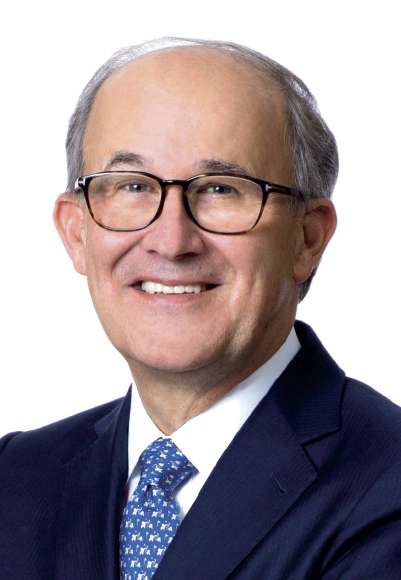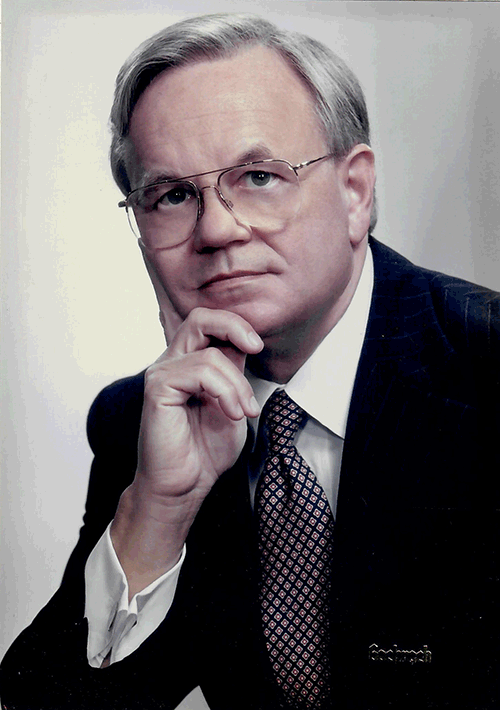Charles Howard Noski
 Charles Howard Noski, born August 23, 1952, in Eureka, California, was elected Chairman of the Board of Directors of Wells Fargo & Company in March 2020. He is a retired vice chairman and chief financial officer of Bank of America Corporation. He was chief financial officer of Northrop Grumman Corporation from 2003 until 2005 and a member of Northrop Grumman’s board of directors. Noski was chief financial officer of AT&T Corporation from 1999 until 2002 and vice chairman of the board of directors during 2002. From 1990 until 1999, he served in senior leadership positions with Hughes Electronics Corporation, including chief financial officer, president and chief operating officer, and a member of the board of directors.
Charles Howard Noski, born August 23, 1952, in Eureka, California, was elected Chairman of the Board of Directors of Wells Fargo & Company in March 2020. He is a retired vice chairman and chief financial officer of Bank of America Corporation. He was chief financial officer of Northrop Grumman Corporation from 2003 until 2005 and a member of Northrop Grumman’s board of directors. Noski was chief financial officer of AT&T Corporation from 1999 until 2002 and vice chairman of the board of directors during 2002. From 1990 until 1999, he served in senior leadership positions with Hughes Electronics Corporation, including chief financial officer, president and chief operating officer, and a member of the board of directors.
Noski began his accounting career as a staff accountant at Haskins & Sells (now Deloitte) in 1973 and rose to partner with Deloitte & Touche, where he served some of the firm’s largest and most complex clients. Noski is lead independent director of Booking Holdings Inc., and a director and member of the finance and investment committee of Hewlett Packard Enterprise Company. He previously served as a director and chairman of the audit committee of Microsoft Corporation, Morgan Stanley, Avon Products, Inc., Booking Holdings Inc., and Wells Fargo, and as chairman of the Board of Trustees of the Financial Accounting Foundation (2016-2019), chairman of the Financial Accounting Standards Advisory Council, and a member of the Standing Advisory Group of the Public Company Accounting Oversight Board.
Noski is a member of the American Institute of Certified Public Accountants (AICPA), Financial Executives International (FEI), and the Audit Committee Leadership Network-North America, and served as an inaugural member of the Ernst & Young Independent Audit Quality Committee (2019-2020). He was inducted into the inaugural class of the FEI Hall of Fame in 2006. Noski earned a Bachelor of Science in Business Administration and a Master of Science in Accountancy from California State University, Northridge. A long-time supporter of accounting education, he received the school’s distinguished alumnus award in 2002, and an honorary doctorate in 2007. He and his wife Lisa have endowed the Noski Family scholarships for accounting students at Northridge. Noski’s impact includes his public service at the Financial Accounting Foundation and his deep and far-reaching experience across multiple facets of the accounting profession.
From his role as Chairman of the Board of Wells Fargo, to serving as chief financial officer for some of the world’s preeminent organizations, to his early days as an auditor, he has led from the front on numerous accounting issues for nearly 50 years and served as a model and mentor to many.
Charles Howard Noski is the One Hundred and Tenth member of The Accounting Hall of Fame.
 Although he had “no inkling he would become an accountant” while studying mathematics as an undergraduate at Harvard College, Robert K. (Bob) Elliott (1941-2022) became a visionary leader, committed to increasing the relevance of the services provided by Certified Public Accountants (CPAs) while seeking to make that community more diverse. After receiving an MBA from the Rutgers Business School, his career took a path toward accountancy. The international firm KPMG was his base and professional home from 1964-2001. He served as an advisor to six Chairs of the Firm.
Although he had “no inkling he would become an accountant” while studying mathematics as an undergraduate at Harvard College, Robert K. (Bob) Elliott (1941-2022) became a visionary leader, committed to increasing the relevance of the services provided by Certified Public Accountants (CPAs) while seeking to make that community more diverse. After receiving an MBA from the Rutgers Business School, his career took a path toward accountancy. The international firm KPMG was his base and professional home from 1964-2001. He served as an advisor to six Chairs of the Firm. Charles Howard Noski, born August 23, 1952, in Eureka, California, was elected Chairman of the Board of Directors of Wells Fargo & Company in March 2020. He is a retired vice chairman and chief financial officer of Bank of America Corporation. He was chief financial officer of Northrop Grumman Corporation from 2003 until 2005 and a member of Northrop Grumman’s board of directors. Noski was chief financial officer of AT&T Corporation from 1999 until 2002 and vice chairman of the board of directors during 2002. From 1990 until 1999, he served in senior leadership positions with Hughes Electronics Corporation, including chief financial officer, president and chief operating officer, and a member of the board of directors.
Charles Howard Noski, born August 23, 1952, in Eureka, California, was elected Chairman of the Board of Directors of Wells Fargo & Company in March 2020. He is a retired vice chairman and chief financial officer of Bank of America Corporation. He was chief financial officer of Northrop Grumman Corporation from 2003 until 2005 and a member of Northrop Grumman’s board of directors. Noski was chief financial officer of AT&T Corporation from 1999 until 2002 and vice chairman of the board of directors during 2002. From 1990 until 1999, he served in senior leadership positions with Hughes Electronics Corporation, including chief financial officer, president and chief operating officer, and a member of the board of directors.